What to Do After IUI to Increase Chances?
Fertility Treatment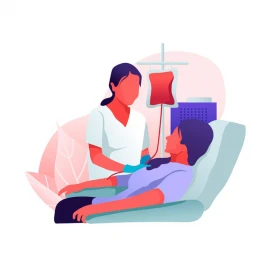
Intrauterine insemination, or, as it is widely known, IUI treatment, is an assisted reproduction technique. In this method, healthy sperm are washed and inserted into the uterus. So far, this technique has helped numerous couples who couldn’t conceive a child as usual. Although the IUI process and timing are very important, its post-procedure care is as important in boosting the likelihood of conception; for this reason, we proceed on to things to avoid after IUI.
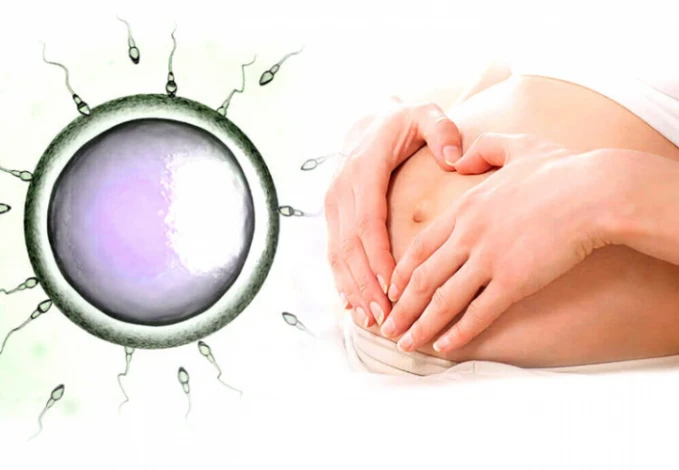
What Is IUI and How Is It Done?
IUI is a simple and outpatient operation that is used for treating infertility as well as sex determination. In this operation, the female should take ovulation induction drugs such as Clomiphene citrate and Aromatase inhibitors to increase egg production. The male partner should also provide a semen sample to the fertility lab. Then, the healthy and motile sperm are separated from the semen sample and inserted into the mother’s uterus by a narrow tube called a catheter.
After two weeks, the mother should take a blood or urine test to confirm the pregnancy. It is essential to wait at least 14 days before taking a pregnancy test because if you do it earlier, the result will be one of the following:
A. False negative: a false-negative result is when you are pregnant, but the pregnancy test is falsely negative due to the low level of pregnancy hormone in your blood and urine.
B. False positive: a false-positive result is when you are not pregnant, but the pregnancy test is reported to be positive due to HCG injection.
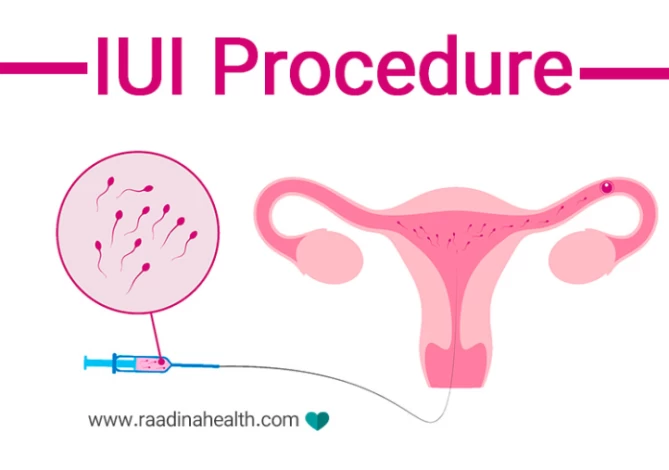
What to Do after IUI?
After IUI, you’d better lie down for 20 to 30 minutes because you may experience cramps and mild abdominal pain right after the procedure. Since IUI is an outpatient operation, you will be discharged from the clinic on the same day and can rest at home.
Your doctor may ask you to take progesterone supplements. This medication will increase your body temperature, make you tired and nauseous, and weaken your muscles. So, having a caregiver by your side and getting enough rest every day after IUI is necessary.
It is worth mentioning that it takes 6 to 12 days for the embryo to attach to the uterine wall. During this period, take the following care:
- Take necessary tests and ultrasounds;
- If necessary, take vitamin supplements as well as folic acid;
- Heavy exercises are prohibited in this period, but you can do light exercises at home or go for a walk;
- Stay relaxed, think positively; and
- Have a balanced diet and eat more vegetables. Avoid eating hot food and foods that aggravate your digestive system if you want to consume foods to help implantation after IUI.
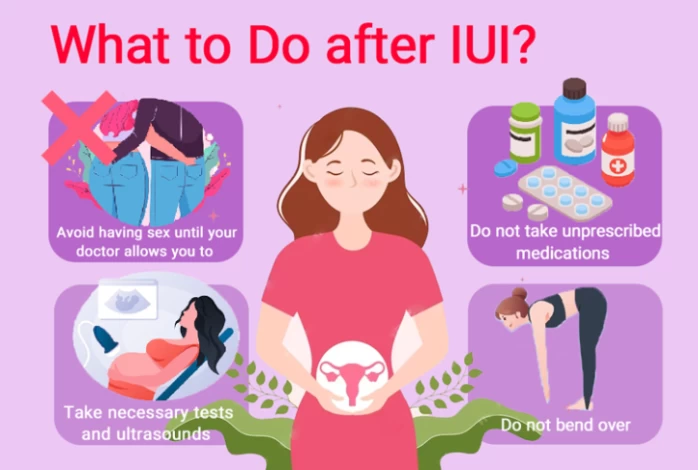
Things to Avoid after IUI
Following your IUI procedure, you can get back to your normal life and do your everyday activities. However, you need to avoid a certain number of things to increase the chances of pregnancy. Some of the precautions to be taken after IUI are described below:
- Avoid smoking and drinking alcoholic beverages, even light ones;
- Avoid having sex until your doctor allows you to;
- Do not bend over;
- Do not take unprescribed medications;
- Do not lift, pull, or push objects heavier than 5 pounds;
- Avoid having stress and anxiety as they can cause hormonal imbalance;
- Avoid strenuous activities such as lifting weights, professional swimming, mountain climbing, etc.
- Avoid going on a trip for at least seven days after IUI care.
Foods to Avoid After IUI:
Avoid spicy and hard-to-digest foods such as Indian and Mexican ones, processed foods, sugary beverages, alcoholic drinks, and too much fish (due to having mercury) after the IUI procedure. Also, some doctors believe that fruits such as papaya and pineapple can act as blood thinners and break down the endometrial layer, so before having them, consult your doctor.
Avoid Stress:
As recent studies have revealed, stress reduces the chance of pregnancy after IUI and prevents embryo implantation. Since stress imbalances hormones and disturbs blood circulation, it can make the uterus less receptive to the fertilized egg. So, it is important to reduce stress through meditation, yoga, and breathing exercises.
How Many Days after IUI Does Implantation Occur?
In many women, implantation happens 6 to 12 days after IUI. The primary and first implantation symptoms are menstrual delay and spots; however, it takes 10 to 14 days for the placenta to produce the human chorionic gonadotropin (HCG) hormone. Therefore, you should wait two weeks before taking a blood test to confirm pregnancy.
How to Increase the Chance of Pregnancy in IUI?
In IUI, the chance of pregnancy in a completely normal, fertile, and healthy couple is about 20% per cycle. Sperms can survive for about three days in the female reproductive system and fertilize the egg within this period, but the egg can only be fertilized 12-24 hours after its release. Therefore, the time of IUI can highly affect the chance of pregnancy. In addition to the right timing, other factors increase the chance of pregnancy in IUI, such as:
Foods to Eat After IUI for Success:
One of the most important precautions after IUI for success is maintaining a balanced and healthy diet to greatly boost the probability of getting pregnant. To follow a healthy after-IUI care regimen, eating more fresh or dried fruit, vegetables, whole grains, nuts, oats, protein, healthy fats, and brown rice is advised. In addition, you need to drink at least three liters of water a day.

Sleeping Position after IUI:
After the IUI procedure, you must lie down for 20 minutes. Following that, you do not need to rest in bed and can continue your daily activities. But after IUI treatment, bed rest is required daily for a healthy mind and body, so get at least 8 hours of sleep.
Additionally, there is no need to sleep on your back following IUI; you can sleep in any position. However, it is generally recommended to avoid sleeping on your belly. Sleeping on your back with a pillow under your hips can help promote blood flow to the uterus and aid implantation. Alternatively, sleeping on your side with a pillow between your knees can provide comfort and support.
While there is no obligation to use a pillow after IUI, some women find using a body pillow or pregnancy pillow helpful for maintaining a comfortable position throughout the night. These pillows can provide additional support and help alleviate any discomfort.
Exercise After IUI Treatment:
Contrary to a common belief, one of the precautions after IUI is not to spend all of your time in bed. Most specialists suggest that the mother exercise moderately for at least one hour daily. Physical activities such as walking, biking, yoga, and light aerobics are advised after IUI. However, strenuous activities such as lifting weights, professional swimming, pushing and pulling heavy objects, mountain climbing, etc., should be avoided after IUI.

Having a Healthy Lifestyle:
Having a healthy lifestyle can enhance the chance of a successful pregnancy after IUI. Before and after IUI, you need to stop smoking and drinking alcohol because they negatively affect your general health and may cause abnormalities in your child.
Also, it is recommended to reduce junk food intake. Do not eat leftovers, low-fat dairy products, sugary sodas, salty and spicy snacks, and raw food after IUI. In addition, you need to get away from harmful radiations and chemicals as much as possible because they can quickly kill eggs and sperm or affect your child’s immune system.

After IUI Precautions: Taking Progesterone and painkillers
Taking medications just as they are prescribed is very important. Your doctor may ask you to take progesterone supplements to thicken your uterine lining and prepare your uterus for embryo implantation. You can take pregnancy-safe painkillers if you have mild pain or cramps after IUI. Remember that taking or cutting any medicine after IUI should be done after consultation with your doctor.
Preparing for IUI
Before performing IUI, it is necessary to consider the following tips.
For male partner:
- Keep your body temperature at an average level;
- Do not use the sauna and hot tub for a week before IUI;
- Avoid strenuous activities but exercise regularly to increase sperm count;
- Do not drink alcoholic beverages for three days before IUI;
- Stop smoking;
- Avoid sexual intercourse or ejaculation for three days before IUI, not more than that;
- Take your semen sample to the andrology lab 15 hours before IUI, and
- Do not use lubricant, lotions, or saliva when providing semen samples.
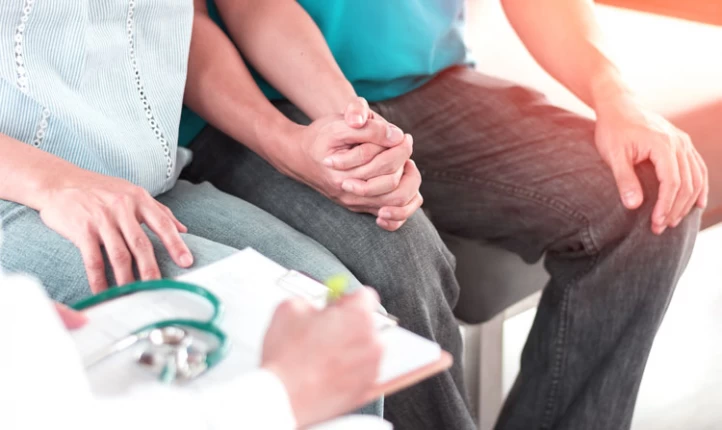
For female partner:
- Perform transvaginal ultrasound to check the condition of your uterus and ovaries;
- Take lab tests for the determination of HIV as well as the antibodies of hepatitis B and C, rubella, etc.;
- Perform ultrasound of the mammary glands;
- Check your ovulation cycle regularly;
- Take ovulation induction drugs as well as other hormonal medications;
- Reduce your anxiety and stress;
- Stop smoking and drinking alcohol;
- Take the recommended supplements and folic acid, and
- Have a healthy and proper diet.
Factors Affecting the Success Rate of IUI
The success of IUI highly depends on several factors, including:
- Total motile sperm count (TMSC). A total motile sperm count of 20 million is sufficient for IUI;
- The age of the couple. The lower the age, the higher the quality of the egg and sperm;
- Lack of severe sperm abnormalities. If the sperm count is very low or the sperm has abnormal morphology, it cannot reach the egg. As a result, IUI is not suitable for men with severe sperm problems;
- The knowledge and experience of the doctor;
- The facilities of the fertility clinic;
- The number of preovulatory follicles. Having one or two mature follicles is enough for patients under the age of 38;
- The proper size of follicles. The average size of mature follicles should be 20 mm;
- Frequency of IUI cycle. Most pregnancies that result from IUI occur in the third or fourth cycle of IUI;
- Lack of ovulation disorders. In patients with polycystic ovary syndrome (PCOS), the ovaries produce fewer eggs than usual;
- Lack of fallopian tube disorders. Patients who have (even one) open fallopian tubes have a higher chance of pregnancy by IUI;
- The type and dose of medications. Taking ovulation induction drugs, as well as hormonal medications, greatly impacts the success of IUI.
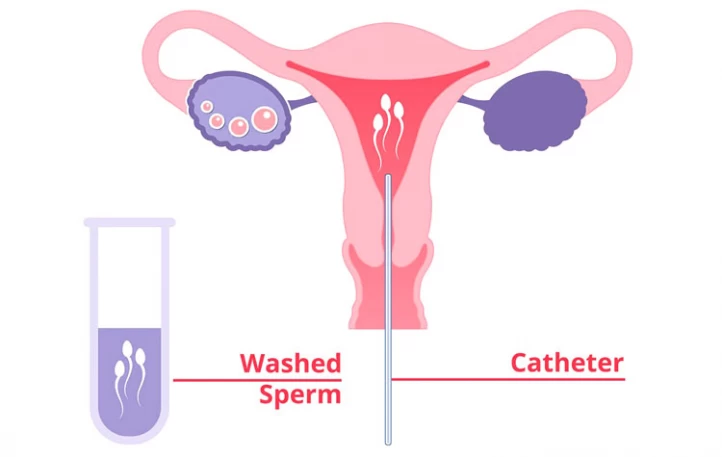
Follicle Size and Number for IUI Pregnancy
The size and number of the follicles play an essential role in the success of IUI. According to studies, the average size of a suitable follicle for pregnancy by IUI is between 18 to 22 mm. When the follicles reach the desired size, and the uterus lining is seven millimetres, HCG is injected, and then, 36 to 40 hours after injection, the IUI is performed.
Moreover, for each cycle of IUI, one or two mature follicles are enough. Developing more than two follicles increases the chance of multiple births and may endanger the life of both the mother and the embryos. After drug treatment, women with more than four follicles cannot do IUI.
Signs of Implantation after IUI
The embryo attaches to the uterus about 6 to 12 days after IUI. Then you can see the signs of implantation, such as:
- Menstrual delay;
- Spotting or bleeding;
- Bloating and constipation;
- Cramping;
- Breast tenderness;
- Extreme fatigue; and
- Nausea, especially in the morning.
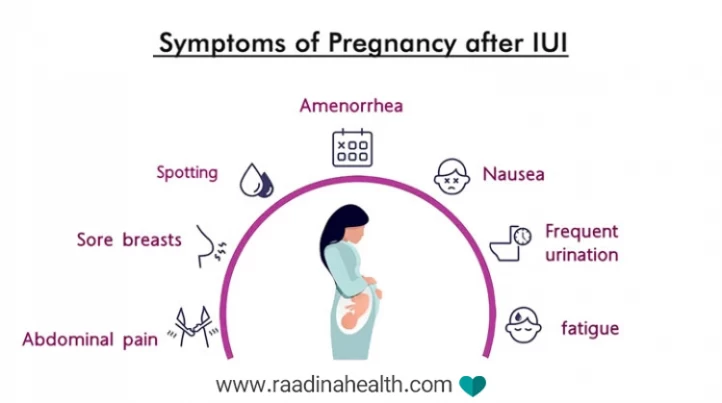
We should note that these early symptoms are sometimes false and result from progesterone injections, so it is necessary to wait 15 days before taking a pregnancy test.
IUI Failure: Causes and Symptoms
The failure of the IUI depends on several factors, including:
- Low quality of eggs;
- Poor quality of sperm;
- Ovulation disorders;
- Having too much stress that causes hormonal imbalance;
- Abnormal endometrial lining and
- Lack of progesterone.
It is noteworthy that there is no symptom of IUI failure. The only way to diagnose failed IUI is by checking the vaginal discharges. Therefore, contact your doctor if you have unusual discharges after IUI implantation.
Repeating IUI Cycle
You can repeat the IUI cycle almost three months after each failed IUI to increase the chance of a successful pregnancy. According to investigations, 88% of successful IUI pregnancies occurred on the third cycle, and 95% happened on the fourth.
Most fertility doctors recommend that couples under 40 repeat IUI three times to achieve a successful pregnancy. However, people over 40 are advised to use other fertility methods, such as IVF, if pregnancy does not occur after the first IUI cycle.
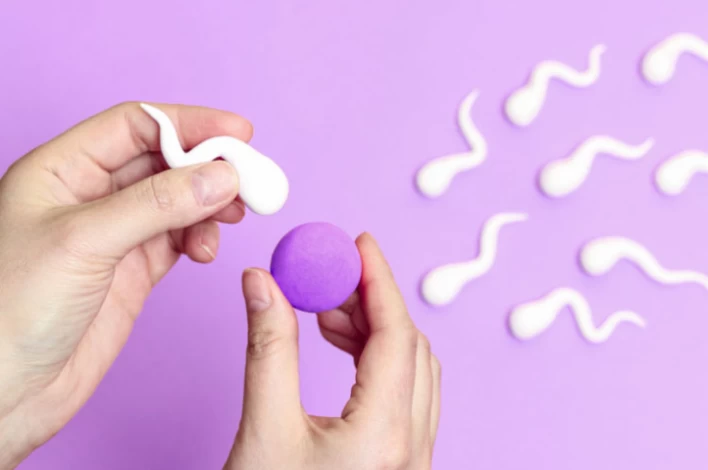
Conclusion
In sum, IUI is one of the most helpful methods of assisted reproduction, which is now used worldwide. Apart from the procedure, the IUI post-op care is crucial for a successful pregnancy, so it is essential to consider the tips mentioned above after your IUI.
As one of the main hubs in fertility treatments, Iran is a proper destination for couples seeking fertility treatments, including IUI.
In Iran, assisted reproductive techniques such as IVF, IUI, ICSI, etc., are done with the latest technologies and are reasonably priced. Here, you can get more information on fertility centers in Iran and the price of IUI in each city. Also, you can find the best fertility doctors in Iran and choose the most suitable package.
After IUI Precautions FAQs
How long after IUI can I expect to know if I am pregnant?
Typically, a pregnancy test can be taken around two weeks after the IUI procedure to determine if conception has occurred.
Is it normal to experience mild spotting or bleeding after an IUI?
Yes, it is relatively common to experience light spotting or minimal bleeding after an IUI procedure. This can be caused by the catheter used during the procedure or implantation bleeding.
Are there any restrictions on sex after IUI?
While there are no strict restrictions on sexual activity post-IUI, some doctors may advise refraining from intercourse for a day or two after the procedure.
If I experience cramping after an IUI, does it mean it was unsuccessful?
Cramping after an IUI is common and does not necessarily indicate success or failure. Various factors, such as catheter insertion or ovarian stimulation medications, can cause cramping. The only way to confirm pregnancy is through a pregnancy test.
What should I do if my period starts after an IUI?
If you experience a menstrual period after an IUI, it may indicate that conception did not occur during that cycle.
What is the recommended sitting position after IUI?
After an IUI procedure, it is generally recommended to rest in a comfortable, reclined position for about 10-15 minutes. This allows the sperm to travel towards the fallopian tubes and increases the chances of successful fertilization.
Can we walk after the IUI procedure? Is it safe?
Yes, it is generally safe to resume walking after an IUI procedure. Walking can help improve blood circulation and reduce the risk of blood clots.
Is it safe to climb stairs after undergoing an IUI procedure?
Generally, it is safe to climb stairs after an IUI procedure. However, taking it easy and avoiding excessive physical exertion for the first few days following the procedure is advisable.
When does implantation happen after IUI?
Implantation typically occurs 6-12 days after IUI (intrauterine insemination).
Can sperm fall out after IUI?
A: No, sperm is placed directly into the uterus using a catheter, so it cannot fall out the way it might during natural intercourse.
When should I stop drinking before IUI?
It’s best to avoid alcohol at least a few weeks before IUI to improve egg quality and sperm health.
How many days of rest are recommended after IUI?
Most women can resume normal activities the same day, but avoiding heavy exercise or stress for a few days may help.
Does diet after IUI affect success rates?
Eating a balanced diet rich in protein, leafy greens, and whole grains supports reproductive health and may increase your chances.




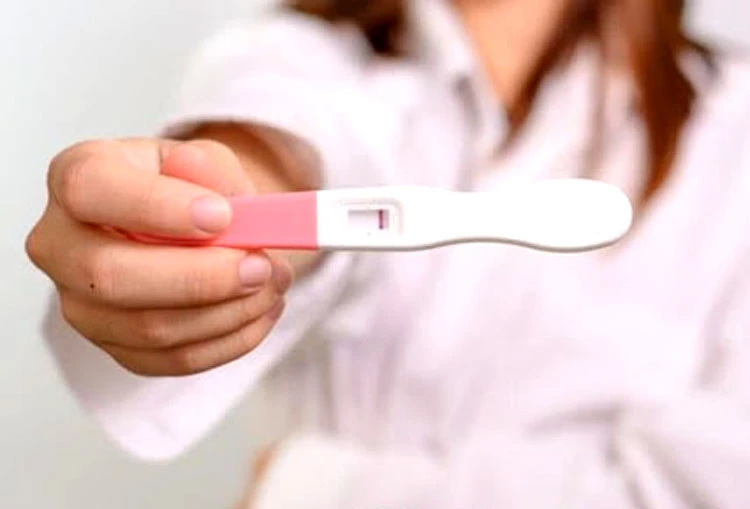
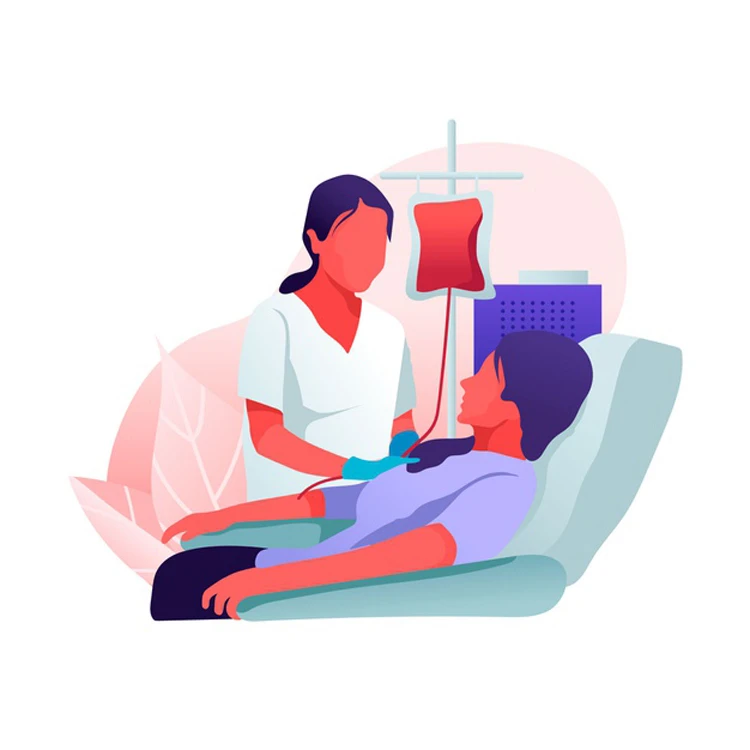
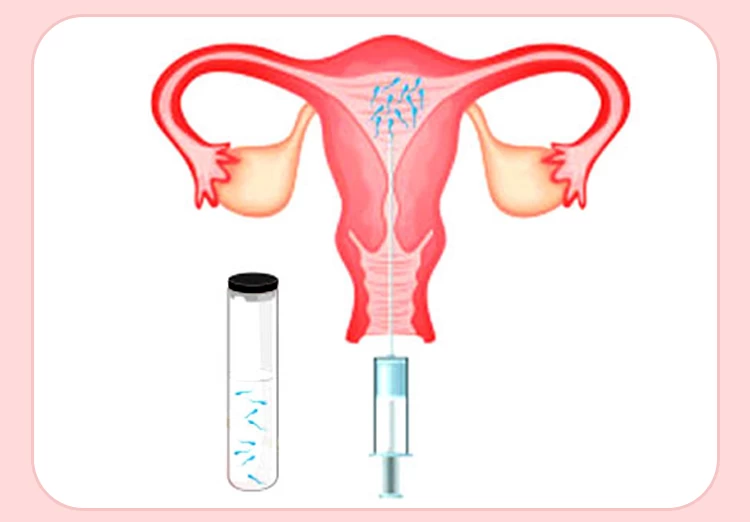
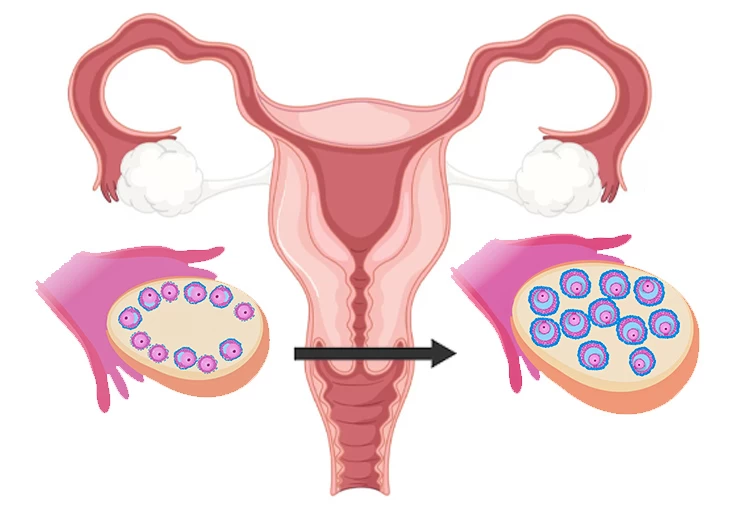
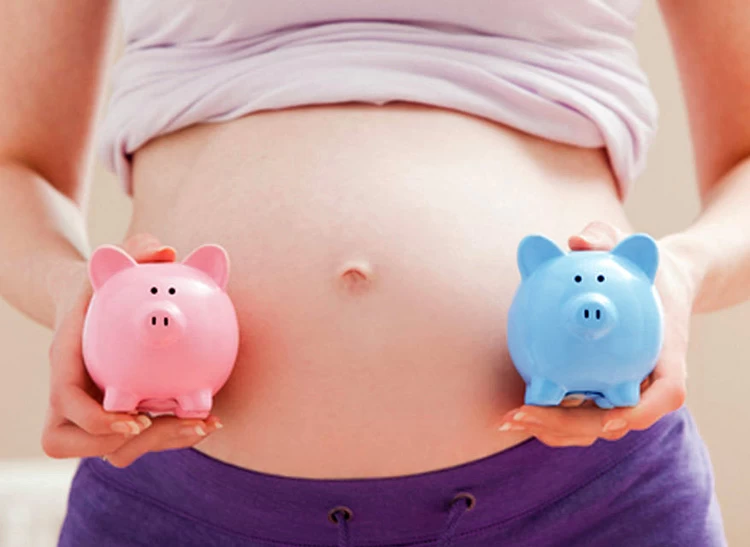
User
-Thank you for a blog on What to Do After IUI to Increase Chances , very helpful
Habib Ebrahimi
-Thanks for your kindness message
User
-Thank you very much
Habib Ebrahimi
-Thanks for your attention
User
-Thank you very very good knowledge for IUI
Habib Ebrahimi
-You're welcome. If you have any questions you can discuss them with our experts.
User
-Thank you so much This is helpful
User
-Thanks alot
User
-Thank you so much for your information
User
-Thank you very much for your good teaching
User
-Thank you so much for the guide line
User
-i have a hyperthyroidism and taken medicine,and Im done IUI lastdays,is there a chance to get pregnant while taken the medicine?thanks
Habib Ebrahimi
-It is better to treat your hyperthyroidism then try for pregnancy.
wish you all best.
User
-Much appreciated 🙏